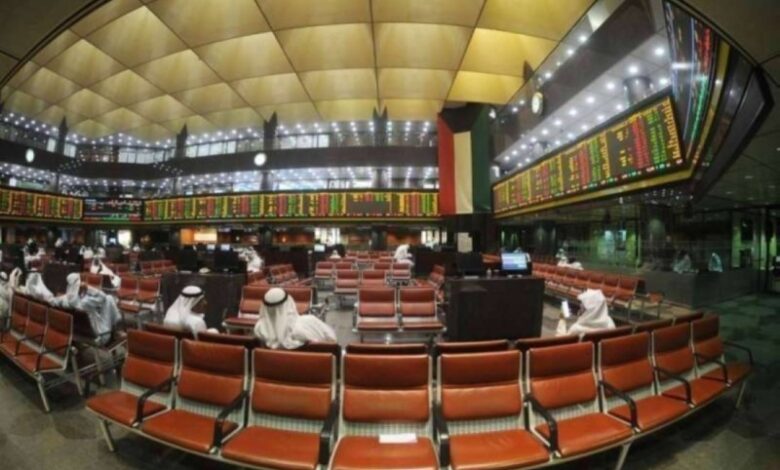Kuwait Stock Exchange loses 378 million dinars amid global market sell-off
Across the Gulf, most markets were swept by the global downturn. The Dubai index declined 1 percent, Abu Dhabi fell 0.3 percent, Qatar dipped 1.09 percent, and Bahrain lost around 8.6 points. The Saudi benchmark “TASI” initially slid to its lowest point of the session before rebounding to close 0.4 percent higher.

The main indices of the Kuwait Stock Exchange closed lower on Tuesday, with the market capitalization shedding about 378 million dinars to settle at 52.557 billion, compared to 52.935 billion dinars in the previous session.
The decline came in tandem with a broad downturn across regional and global markets, driven by a sharp sell-off in major technology stocks and rising concerns that the US Federal Reserve may delay interest rate cuts at its upcoming meeting.
Despite the market’s steep drop at the opening — falling nearly 2 percent — trading sentiment gradually stabilized, allowing the exchange to recoup part of its losses. By the close, the general market index was down 0.72 percent, the First Market Index slipped 0.7 percent, the “Main” Index fell 0.8 percent, and the “Main 50” Index retreated 0.95 percent.
The session was marked by strong trading activity. Liquidity surged 43 percent to 128.76 million dinars, traded volumes rose 64.4 percent to 722.50 million shares, and the number of executed transactions increased 61 percent to approximately 38,180. Ten sectors finished lower, led by the technology sector, which dropped 5.41 percent. In contrast, the insurance and consumer services sectors posted modest gains of 0.14 percent and 0.05 percent respectively, while the healthcare sector remained unchanged.
The global sell-off intensified yesterday, with Japan’s Nikkei 225 and South Korea’s Kospi each losing more than 3 percent, following deep losses on Wall Street where Nvidia and other artificial intelligence-linked stocks led declines. European markets also retreated, with the STOXX 600 index falling 1.1 percent to 565.4 points — its lowest level since November 7 — while major exchanges in Germany and France dropped more than 1.2 percent.
Fawzi Al-Dhafeeri, Assistant Vice President of the Investment Research Unit at Kuwait Investment Company, said the declines on the Kuwait Stock Exchange were largely a reaction to global market weakness driven by expectations of continued monetary tightening by the US Federal Reserve, reports Al-Rai daily.
He described the drop as primarily psychological, noting that the early 2 percent decline and subsequent recovery reflected strong risk appetite and ample liquidity in the market.
Al-Dhafeeri added that the continued inflow of foreign liquidity since the beginning of 2025 has strengthened the exchange’s resilience. He noted that no significant changes are expected in the MSCI review this month, eliminating the likelihood of technical pressures on the market.
He attributed global declines to renewed fears of an overheating artificial intelligence investment bubble, especially after heavy sell-offs in US tech stocks. He also pointed to investor caution ahead of delayed US economic data that may provide clues about the timing of future rate cuts, as well as falling oil prices, which further weighed on sentiment.
Raed Diab, Senior Vice President of Research and Investment Strategies at Kamco Invest, said the current declines are normal and expected following the substantial gains recorded since the start of the year. He noted that many investors are engaging in profit-taking as companies prepare to report nine-month financial results.
Diab emphasized that Kuwait’s economic fundamentals remain solid across key sectors including banking, finance, and real estate.
He highlighted that the Kuwait Stock Exchange ranks among the best-performing markets in the region and the world this year, which helped cushion the impact of the global downturn. He added that Kuwait’s limited exposure to technology and AI-linked stocks reduced the scale of losses compared to markets such as Dubai and Qatar, which are more closely tied to the sector.












